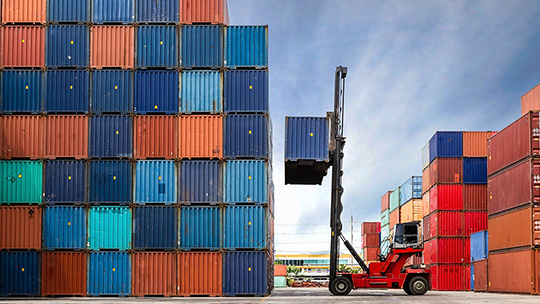Vietnam FDI Real Estate Report- Streamlining Efficiency Part 1
By Keith Hilden, Squawk Advisors
Southeast Asia is a region that is encountering solid growth with little roadblocks in terms of political instability which has gripped northern Asian economies in recent months. This is manifesting in blanket risk considerations for new capital projects across the potentially imperiled region. One economy in particular is what some call the new China. I am of course talking about Vietnam. As per Xinhua, Vietnam is currently leading Southeast Asia this year in real GDP, with an expected GDP post of 6.8 percent for the year of 2017.
Despite fast paced growth, rapid privatization of state-owned enterprises, and swift reforms to investment laws under the pro-business and investment focused PM Nguyen Xuan Phuc, Vietnam’s economy continues to present a unique market situation with specific opportunities and challenges.
One such issue lies in Vietnam’s legal framework surrounding real estate. Legacy structures in the country’s regulations can at times present an investment bottleneck- for example, only US$1.15bn in FDI registered real estate investment capital mobilized in the first half of 2017 in Vietnam. This is not because of the lack of real estate opportunities- quite the contrary.
However, the current pathways for investment and development in Vietnam are time consuming- so much so to the point that the Vietnam government during recent meetings has definitively identified the need to streamline investment processes in order to facilitate greater investment flows into suitable projects in the country.
This revamping of the investment laws is being done in order to achieve targets of not only standalone real estate projects, but also of integrated townships such as from VSIP as well as entire new additions to Ho Chi Minh City. For example, the now-widely promoted flagship Thu Thiem Urban Area project, slated to replace Ho Chi Minh City’s District 1 as the new downtown area of the city, has a total investment target of roughly US$50 billion in total, which is approximately a whopping 25 percent of the country’s GDP (albeit to be registered and disbursed over a number of years in order to realize the scale of this critical national project).
Further coverage and details are available from our early investor alert back in 2015. This is particularly crucial for the coming infrastructure investment boom, in which Vietnam’s infrastructure investments will exceed those of neighboring countries, while also requiring a heavy proportion of FDI investment into these projects.
A surge in tourism has also been very supportive of Vietnam real estate projects, particularly ones that are poised to benefit from such a surge in tourism. During the first four months of 2017, tourism arrivals spiked over 30 percent from last year, making Vietnam Southeast Asia’s fastest growing tourism destination. Airlines, airports, and the government are all making preparations to increase this number further to expand Vietnam’s tourism potential to the fullest. And in Danang, the “Las Vegas” of Vietnam is starting development, with the flagship project Cocobay Danang leading the initiative to transform the city into the entertainment hub of the country.
Indebted consumer or public debt in a market typically does its part to take the sheen off an otherwise glossy market, and we certainly see this in developed OECD markets with high debt levels weighing down on future gains. However, in Vietnam’s case, the debt situation is quite sustainable and is not at levels that would trigger a slowdown in the capital markets or the real estate markets as a whole.
Vietnam’s household debt stands at just 20 percent GDP at the end of 2016, while regional peers such as Malaysia and Thailand have clocked in about 80 percent of GDP, which has acted as a brake pad for the growth of various sectors in the Thai and Malaysian economy respectively. While Vietnam as a whole was thrown a bit off-kilter from the US withdrawal of the TPP upon Donald Trump’s election, Vietnam has a whole gotten back on their feet and maintains the target of 6.8 percent GDP for 2017. This is a comparatively far better situation than not only Southeast Asian peers, but also from China grappling with its own debt issues.
With neighboring China’s fixed capital investment at nearly 90 percent of GDP, the search is on for unsaturated markets with plenty of room for growth such as Vietnam. Public debt to GDP as well as the investment component to GDP are currently at sustainable levels. We are currently seeing this search for Chinese investor yield abroad in the form of a higher proportion of total sales coming from China, as well as our observation of increased Korean investment in real estate projects in Vietnam in general. Furthermore, consensus agrees that Vietnam real estate is a safe bet for the foreseeable future. Jones Lang LaSalle forecasts 8 to 10 percent annual growth in residential values in the country’s major cities this year. This consensus indicates a solid trajectory for the 2017-2018 period and the foreseeable future. The nation, however, does have a debt banking issue, which is a double-edged sword that leads us to the next point, which in coordination with Dezan Shira we will release Part 2 shortly.
|
Squawkonomics is a crowdfunded frontier market investment research firm that handles investment into over 10 industrial areas in Cambodia and Vietnam, and provides a wide array of investment research reports concerning the Asia Pacific and Latin American investment opportunities. Squawkonomics also assists investors with our portfolio of private equity investments, laying out promising opportunities throughout the APAC and LATAM regions. For investors in need of finding their next investment destination in Southeast Asia, contact us for details. Vietnam Briefing is published by Asia Briefing, a subsidiary of Dezan Shira & Associates. We produce material for foreign investors throughout Eurasia, including ASEAN, China, India, Indonesia, Russia & the Silk Road. For editorial matters please contact us here and for a complimentary subscription to our products, please click here. Dezan Shira & Associates provide business intelligence, due diligence, legal, tax and advisory services throughout the Vietnam and the Asian region. We maintain offices in Hanoi and Ho Chi Minh City, as well as throughout China, South-East Asia, India, and Russia. For assistance with investments into Vietnam please contact us at vietnam@dezshira.com or visit us at www.dezshira.com
|
![]()
 Dezan Shira & Associates Brochure
Dezan Shira & Associates Brochure
Dezan Shira & Associates is a pan-Asia, multi-disciplinary professional services firm, providing legal, tax and operational advisory to international corporate investors. Operational throughout China, ASEAN and India, our mission is to guide foreign companies through Asia’s complex regulatory environment and assist them with all aspects of establishing, maintaining and growing their business operations in the region. This brochure provides an overview of the services and expertise Dezan Shira & Associates can provide.
 An Introduction to Doing Business in Vietnam 2017
An Introduction to Doing Business in Vietnam 2017
An Introduction to Doing Business in Vietnam 2017 will provide readers with an overview of the fundamentals of investing and conducting business in Vietnam. Compiled by Dezan Shira & Associates, a specialist foreign direct investment practice, this guide explains the basics of company establishment, annual compliance, taxation, human resources, payroll, and social insurance in this dynamic country.
Managing Contracts and Severance in Vietnam
In this issue of Vietnam Briefing, we discuss the prevailing state of labor pools in Vietnam and outline key considerations for those seeking to staff and retain workers in the country. We highlight the increasing demand for skilled labor, provide in depth coverage of existing contract options, and showcase severance liabilities that may arise if workers or employers choose to terminate their contracts.
- Previous Article Korean Investment in Vietnam
- Next Article Vietnam: Transition from Paper Invoices to E-invoices

































